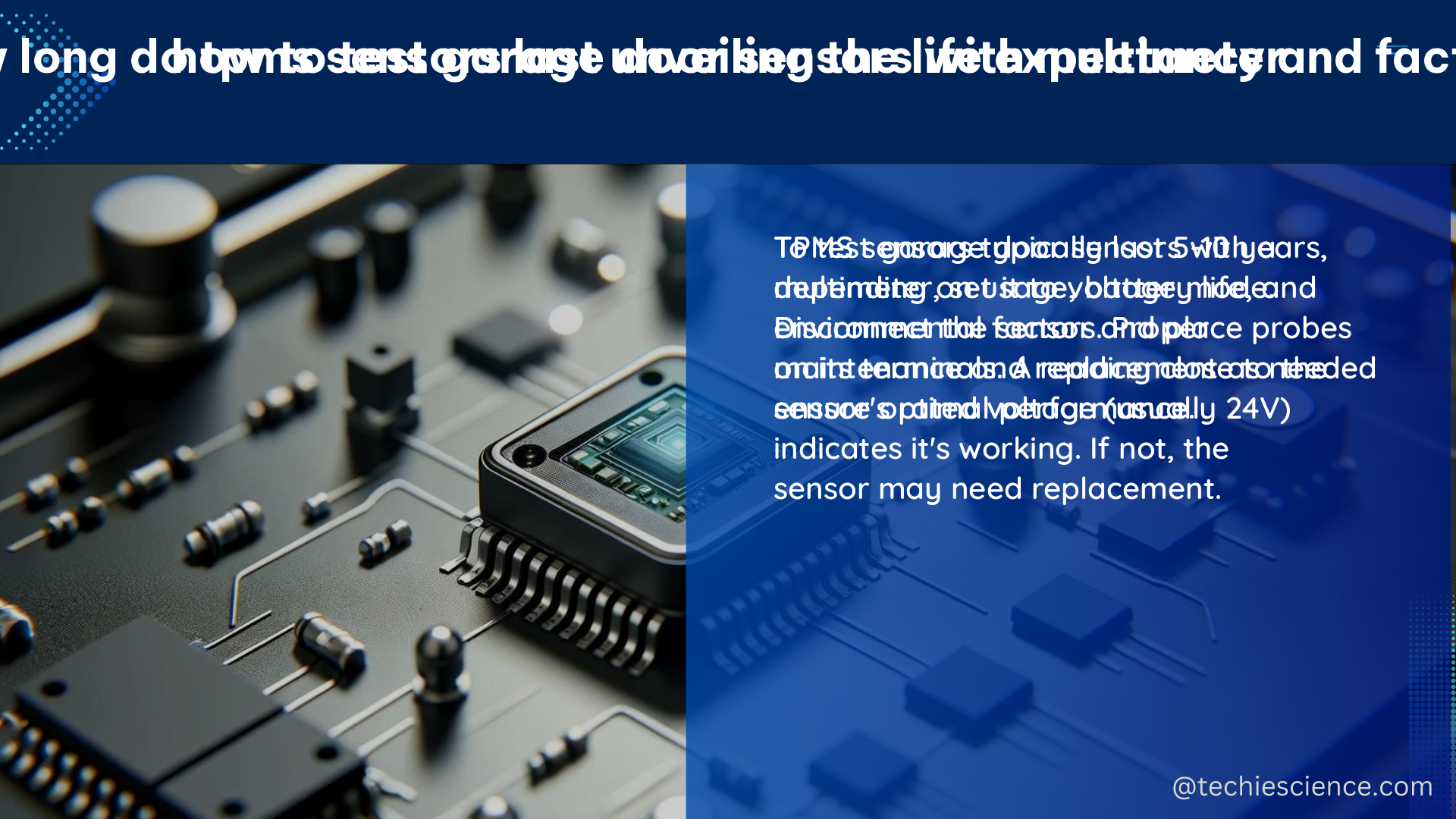TPMS (Tire Pressure Monitoring System) sensors are crucial for ensuring the safety and efficiency of a vehicle’s tires. The life expectancy of TPMS sensors can vary based on several factors, including the type of battery used, driving conditions, and the sensor’s manufacturing quality.
TPMS Sensor Battery Life Expectancy
The typical life expectancy of a TPMS sensor battery ranges from 5 to 7 years, with some sensors lasting up to 100,000 miles. However, driving conditions can significantly impact the battery life:
- Frequent On-Off Cycling: Sensors that experience frequent on-off cycling, such as those in vehicles that are driven intermittently, can have their battery life reduced by up to 50%.
- Tire Pressure Sampling Frequency: Sensors that are programmed to check tire pressure more frequently (e.g., every 30 seconds) will have a shorter battery life compared to those that check less frequently (e.g., every 60 seconds).
- Temperature Extremes: Exposure to extreme temperatures, both hot and cold, can accelerate the battery’s self-discharge rate, shortening its lifespan.
Case Studies on TPMS Sensor Longevity
- Lexus Owner: A Lexus owner reported that their original TPMS sensors were still functioning after 14 years, surpassing the expected lifespan of lithium-ion batteries.
- Toyota/Lexus Owner: A Toyota/Lexus owner mentioned that their Panasonic BR2450A sensors, which use poly-carbonmonofluoride cells for high-temperature applications, have a shelf life of 10 years and are expected to last the longest in moderate climates.
TPMS Sensor Replacement Considerations

It’s important to note that TPMS sensor batteries cannot be replaced, and once they expire, the entire sensor assembly must be replaced. This is because the batteries are encased in molded plastic housing, making battery replacement impossible.
TPMS Sensor Types
There are two main categories of TPMS sensors:
- Band Type Sensors: These are typically found in older vehicles and are less reliable and durable than valve stem type sensors.
- Valve Stem Type Sensors: These are more common in newer models and are generally more reliable and durable than band type sensors. They can also be replaced individually if one fails, rather than replacing all of them at once.
Recommended Replacement Age
In terms of sensor longevity, it’s generally recommended to replace TPMS sensors that are 9 years old or older, as their battery life may be significantly reduced. However, if you plan to use tires with sensors that have been sitting for a year or more, it’s best to replace them, as exposure can cut their expected life of 6 years by a year or more.
Factors Affecting TPMS Sensor Life Expectancy
The life expectancy of TPMS sensors can be influenced by various factors, including:
- Battery Type: The type of battery used in the sensor can significantly impact its lifespan. Sensors with lithium-ion batteries generally have a longer life expectancy than those with other battery types.
- Sensor Quality: The manufacturing quality of the TPMS sensor can also affect its longevity. Sensors from reputable manufacturers tend to have a longer lifespan compared to lower-quality, generic sensors.
- Driving Conditions: As mentioned earlier, factors like frequent on-off cycling, tire pressure sampling frequency, and temperature extremes can all impact the sensor’s battery life.
- Sensor Placement: The location of the TPMS sensor within the tire can also play a role in its lifespan. Sensors that are exposed to more vibration or physical stress may have a shorter life expectancy.
- Maintenance and Care: Proper maintenance, such as regular tire rotations and inspections, can help extend the life of TPMS sensors by ensuring they are functioning correctly and not subjected to excessive wear and tear.
Conclusion
In summary, TPMS sensors typically last between 5 and 7 years, with some sensors lasting up to 100,000 miles. However, the life expectancy of these sensors can be significantly impacted by various factors, including the type of battery used, driving conditions, sensor quality, and maintenance practices. It’s generally recommended to replace TPMS sensors that are 9 years old or older, and to consider replacing sensors on tires that have been sitting for an extended period.
References:
- Life Expectancy of TPMS Sensors
- TPMS Longevity
- OE TPMS Life Expectancy
- Life Span of TPMS
- Life of Tire Pressure Sensors

The lambdageeks.com Core SME Team is a group of experienced subject matter experts from diverse scientific and technical fields including Physics, Chemistry, Technology,Electronics & Electrical Engineering, Automotive, Mechanical Engineering. Our team collaborates to create high-quality, well-researched articles on a wide range of science and technology topics for the lambdageeks.com website.
All Our Senior SME are having more than 7 Years of experience in the respective fields . They are either Working Industry Professionals or assocaited With different Universities. Refer Our Authors Page to get to know About our Core SMEs.